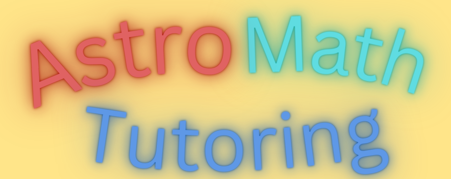“Quantitatively, Logic connects itself through the medium of Number with the intuitions of Space and Time. Qualitatively, Logic builds upon facts of another order which have their abode in the constitution of the Mind.” - George Boole, 1866 (paraphrase)
Math teaches us about ourselves--about how we are perceive the world and organize those perceptions--as much as it teaches us about the world. It is both a science (quantitative) and a language (qualitative). Engineers, scientists, and other advanced specialists use the quantitative aspects of mathematics. The usefulness of mathematics in these areas is well established and widely understood. How mathematics can be just as useful in the qualitative areas of life is not yet widely known.
Science studies why things work; mathematics studies how they work. For instance, Kepler’s Laws tell how the planets move around the sun; Newton’s Theory of Gravity tells why. There is no reason to limit the scope of mathematics to only fields like geometry, algebra, and planetary motion, that we perfectly understand. Doing so is like being a musician who only studies Beethoven to the exclusion of all other composers. Mathematical thinking can easily be applied more broadly to questions of how the economy works, or how the mind works. The present-day math curriculum in the United States is so narrowly focused because it was designed to train people to be computers—literally. 100 years ago, the word “computer” meant a job that paid the equivalent of 30k a year to solve equations all day. The profession of human “computers” no longer exists, made obsolete many decades ago by electrical computers, yet the curriculum survives as a weed-out course—the largest hoop that students must jump through on their way to procuring a desirable profession.
The purpose of rules, whether it’s science, morality, or even video games, is to guide our exploration as we seek out new experiences. Mathematics is the ideal field for examining how we relate to rule-based systems. Do we use rules as guides that help us explore, respecting their spirit while creatively exploring the terrain they cover? Or do we view rules from afar as boundaries not to be violated?
In a left-brain dominant state ("fallen state" in the Bible), rules cease to guide and instead dominate, shutting down our desire to engage with new experiences and replacing it with the attitude “as long as I’m not violating the rules, I have the right to be left alone." Understanding math as a language--math in its qualitative aspect--can teach us to operate in a “whole-brain dominant” way.
In his book Korzybski: A Life, Bruce Kodish explains how Alfred Korzybski pursued and developed Boole’s insight:
‘Logic’ derives from mathematics, and... all human knowledge and language has a mathematical structure as well. Methods and symbolism from the recognized discipline of mathematics (including mathematical logic) could be searched to yield baby-like ways to change the structure of ordinary language and experience. - http://korzybskifiles.blogspot.com/2014/10/chapter-23-strange-footprints-part-5-c.html
The goal of the Number Flow curriculum is to continue the work of Boole and Korzybski in teaching students to see math as a training ground for problem-solving. Mathematics education in school is not just about preparing and ranking STEM majors; it is about teaching problem-solving strategies and how to properly relate to rule-based systems that we encounter.
